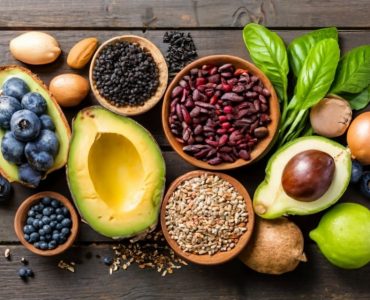(Ocimum basilicum)
Basil or sweet basil originally comes from the middle east and mediterranean regions. It is grown throughout the world as a culinary herb. Three important relatives with similar properties are Ocimum canum (hairy basil), O. gratissimum (basil), and O. sanctum (holy basil).
Basil has been a culinary herb in Europe and Central Asia since ancient times. In India the seeds were used for diarrhoea, mucous discharges, constipation, and as a general demulcent (soothes mucous membranes); the leaves were used for indigestion and skin diseases. In traditional Thai herbalism, the plant is used for coughs, skin diseases, and intestinal problems. The seed is used as a bulk-forming laxative and diuretic.
What it does
Basil leaf contains a potent volatile oil which consists of several terpenoids, thymol, estragole and eugenol. It is also a rich source of Vitamin C and other variable nutrients. the herb is said to be antispasmodic, carminative, mildly sedative, mildly diuretic, antibacterial, antiviral, anti fungal, anti-depressant and an adrenal stimulant. The fibre of the seeds act as a laxative.
Basil isn’t just a culinary champion, it’s a silent warrior for your heart health. Its secret weapon? Eugenol, a natural compound that blocks calcium channels, potentially calming high blood pressure like a skilled swordsman disarming an aggressive opponent. But that’s not all! The aromatic essential oils whisper secrets of lowered cholesterol and triglycerides, while magnesium serenades your muscles and blood vessels, urging them to loosen their grip and improve blood flow. Inflammation, once a raging fire, finds itself soothed by this potent herbal symphony.
Potential Uses of Basil
| Constipation | Diarrhoea | Flatulence |
| Indigestion | Nausea | Anxiety |
| Skin disorders | Stomach cramp |
Other information
Some research into the effects of the leaf and seed of Holy Basil and Hairy Basil on blood sugar levels in non-insulin dependant diabetics showed a positive result. In some cultures basil tea is taken by nursing mothers to increase the flow of breast milk.
basil’s uses and benefits:
More than just a culinary delight, basil boasts a treasure trove of benefits. Its fresh, pungent leaves add vibrant zest to countless dishes, from classic pesto to Thai curries and Vietnamese salads. But the magic doesn’t stop there! Basil’s essential oils contain powerful antioxidants and anti-inflammatory properties, aiding digestion, reducing stress, and promoting healthy skin. Whether you’re a seasoned chef or a kitchen newbie, basil elevates your dishes with flavor and brings a touch of nature’s goodness to your plate.
Cautions
Avoid in pregnancy and whilst breastfeeding.
Basil aromatherapy oil is contra-indicated in pregnancy.
Avoid the use of potent preparations of basil if you have liver or kidney problems. Culinary use is safe.
Generally, there are no side effects or contra-indications from using basil.
At the time of writing there were no well known negative drug interactions with basil.





